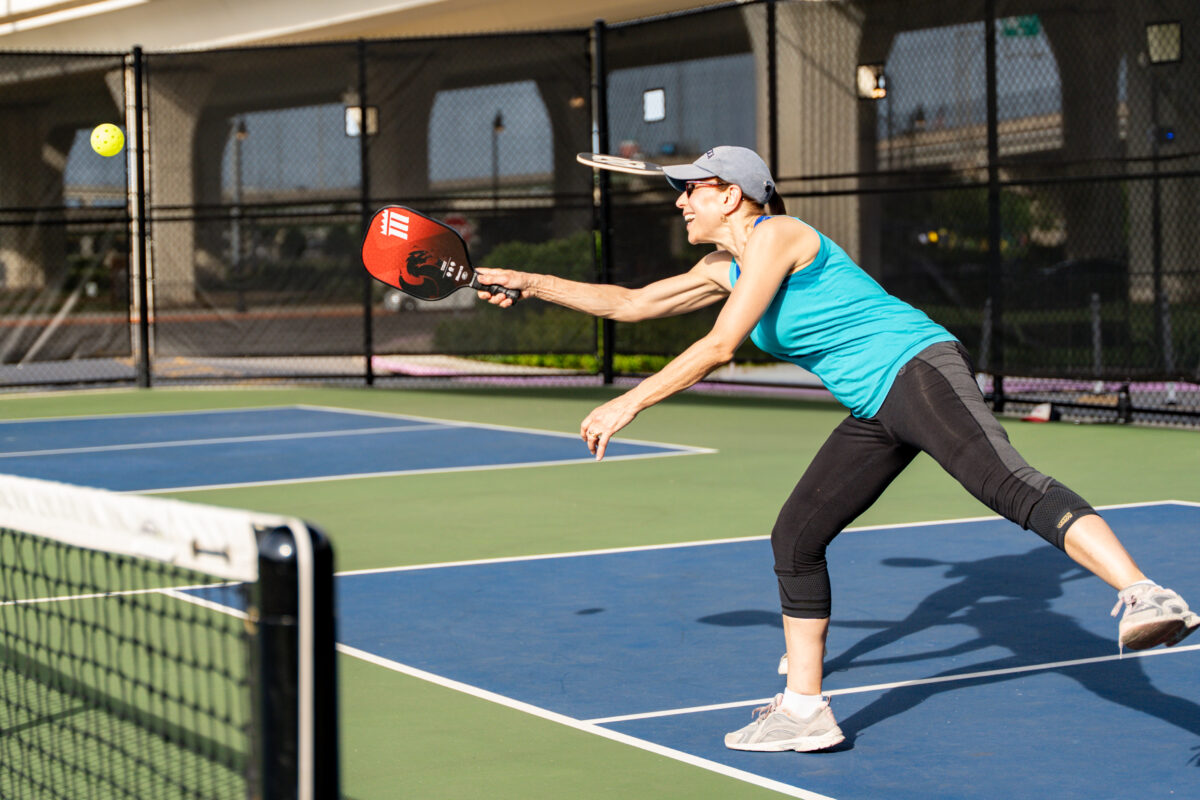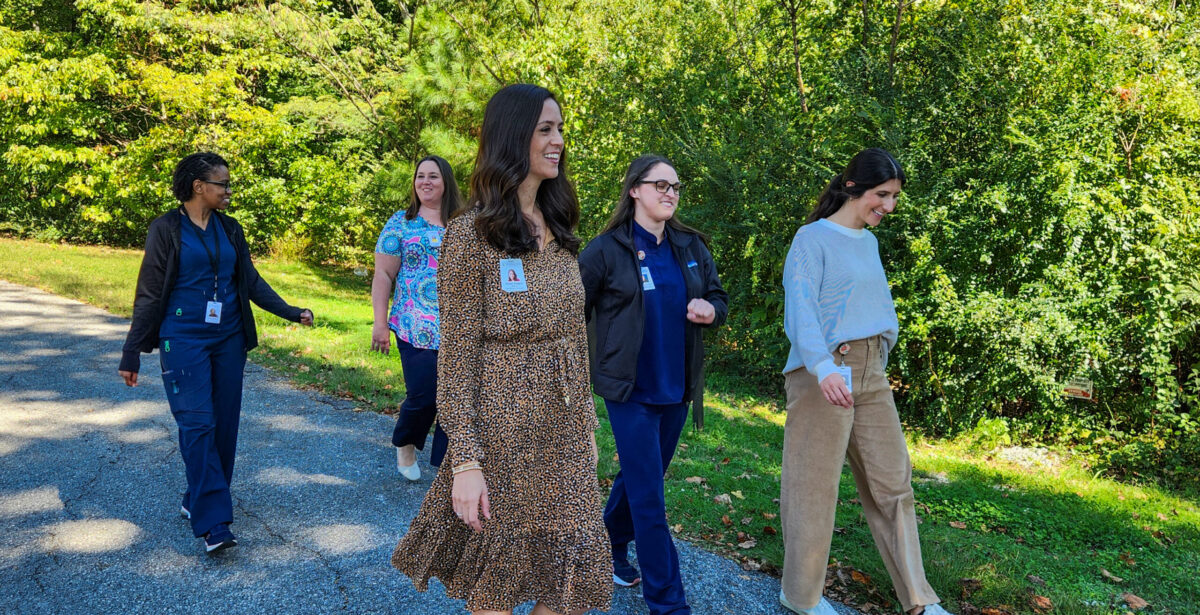5 of the best ways to protect your joints—a local orthopedic expert weighs in
Reading time: 6 minutes
Sponsored

Now that spring is here, it only makes sense to get out and move. No matter your favorite form of movement, it’s important to protect your joints at any age. We reached out to Dr. Thomas E. Powell, affiliated with Brookwood Baptist Medical Center, for his top tips on staying healthy this spring and beyond. Here’s what he said.
1. Pay attention to pain so you can protect your joints
“Most presentations to physicians’ offices are brought on by some type of pain.
Since we have more joints than anything else, that’s a frequent symptom: ‘my [ankle, knee, hip, back—fill in the blank]’ hurts.”
Thomas E Powell, M.D., FAAOS, Powell Orthopedics & Sports Medicine, PC
2. Joint health matters at every age: here’s why

When I asked Dr. Powell why joint preservation matters, his answer was simple: “we don’t get a do-over.”
“Even though we have fancy high-tech joint replacements that can replace almost any weight-bearing joints, they’re not as resilient as the ones you came with. You’re better off if you take a little time to try to preserve the joints you have.”
Are you experiencing pain? Have it checked out by a doctor. Contact Brookwood Baptist Health.
3. The top risks to joint health you need to know about
Osteoarthritis
The biggest risk to joint health, according to Dr. Powell, is osteoarthritis. This is your basic wear-and-tear arthritis, and a completely different thing from rheumatoid arthritis, which is an autoimmune disorder.
“We can’t necessarily prevent osteoarthritis, and we can’t reverse it. The only thing we can do is treat symptoms,” Dr. Powell said.
Obesity
He went on to highlight one of the biggest contributors to osteoarthritis that he sees.
“The biggest challenge for joint health that I think we have in Alabama is the obesity epidemic. A lot of people I see on a regular basis have a Body Mass Index (BMI) over 50, which is just awful for your joints.
Every step you take when you walk, you put two, maybe three times your body weight on that extremity. If you’re 200 pounds, that’s 400-600 pounds on each leg, each knee, each ankle—every time you take a step. Carrying extra weight causes those joints to wear out faster than they would otherwise.”
Thomas E. Powell, M.D., FAAOS, Powell Orthopedics & Sports Medicine, PC
Playing aggressively

Playing hard can have long-term consequences for joint health, according to Dr. Powell. Here are a few of the common ways people like to play hard that can lead to joint pain:
- Lifting heavy weights
- Running into other people:
- Football
- Soccer
- Basketball
- Soccer
Even without high-impact sports like hockey or rugby, you can still get pretty banged up playing these more common sports.
Offensive driving
“If you get in a car wreck, all bets are off in terms of your joint health.
I can’t tell you the number of people we see that were in a bad car wreck 10 years ago and broke their ankle, femur, hip, or hurt their shoulder, and are now paying the price. Nobody wants to think about how that kind of impact affects your joints, but it does.”
Thomas E Powell, MD, FAAOS, Powell Orthopedics & Sports Medicine, PC
4. Moderation: the key way to protect your joints
Given all the risks, I asked Dr. Powell what people can do to prevent injury and wear and tear on their joints. Not surprisingly, he summed up the most effective strategy in one word: moderation. He elaborated by outlining three areas where moderation is key:
- Personal body weight
- Activity level
- Paying attention to things that hurt
Minimize high-impact activities
On the subject of moderation, Dr. Powelll emphasized the importance of lower-impact activities for staying healthy. We talked about running, for example, and what it does to the body.
“Most people probably run between 20 to 25 years. Some started when they were 15 and run until they’re 35 or 40. Some people started when they were 50 and run until they’re 75 or 80. Very few people started when they were 15 and run ’til they’re 75 or 80.
When you run, you put six to eight times your body weight on that extremity, so you can see how impact-driven that is. There are a lot of things you can do to move that are lower impact.”
Some of the lower-impact activities he suggested are:
- Elliptical machines
- Bicycles
- Stationery bikes
- Something in the water or in a pool
5. If you do get injured: what to do to protect your joints

Of course, even with an ounce of prevention, sometimes you really do need a pound of cure. Here are five of Dr. Powell’s tips.
- RICE: rest, ice, compress and elevate. “It works and it’s helpful.”
- Keep moving. “Most minor injuries in adults (ankle sprains, twists, etc.) heal better with dynamic rehabilitation. This means getting the injury stabilized with a brace so you can keep moving.”
- Treat the symptoms.
- Recognize your limits.
- If you feel nauseated, get checked out.
“If you feel really nauseated, or feel like you’re going to black out, that’s probably a specific sign that you need to get somebody to look at whatever you hurt.
If your child falls off their bike and turns their arm and they throw up, get that thing x-rayed. That’s a significant reaction to an injury. So get someone to look at it.
Thomas E Powell, M.D., FAAOS, Powell Orthopedics & Sports Medicine, PC
If you’ve been ignoring a pain in your body for too long, hop over here and take this quiz from Brookwood Baptist Health. You’ll be glad you did.
Sponsored by:





 11001 views
11001 views